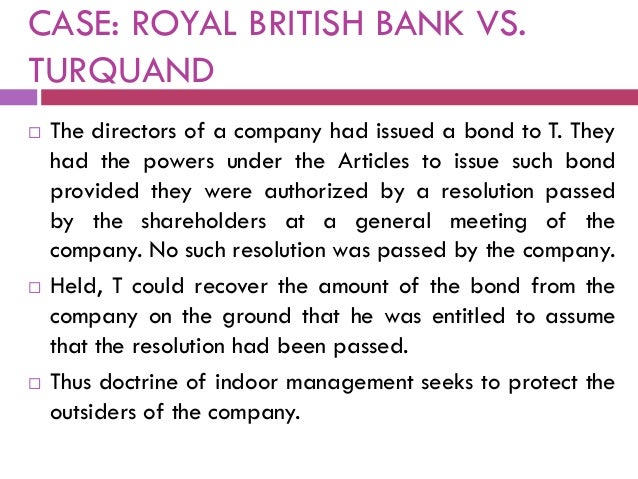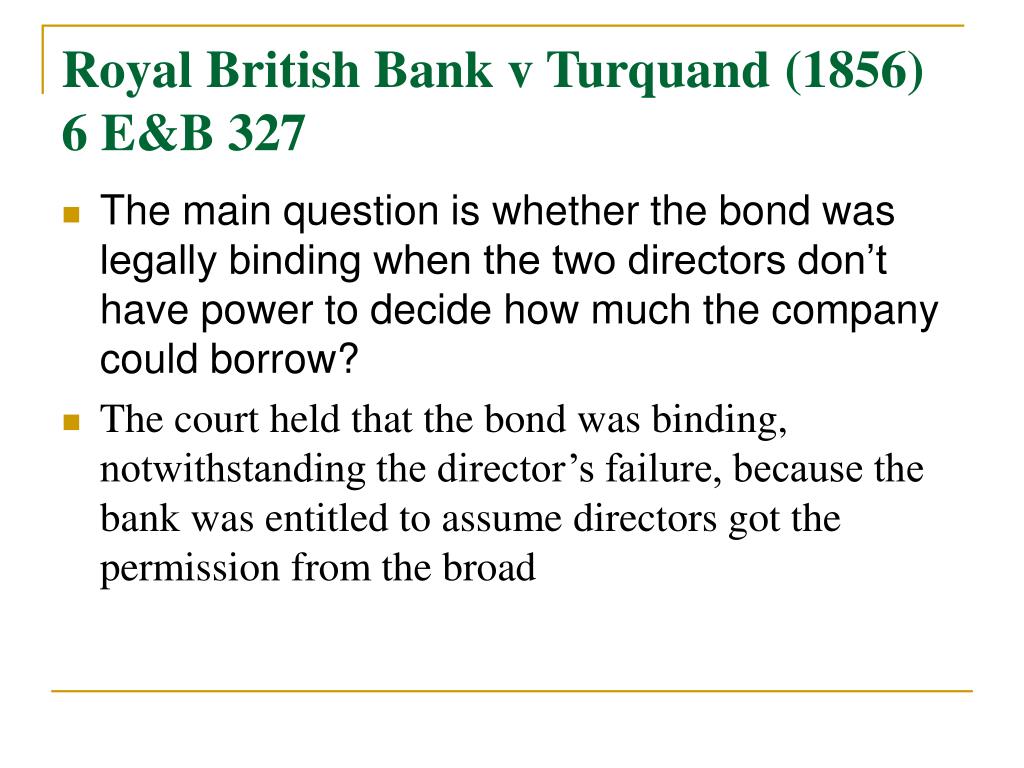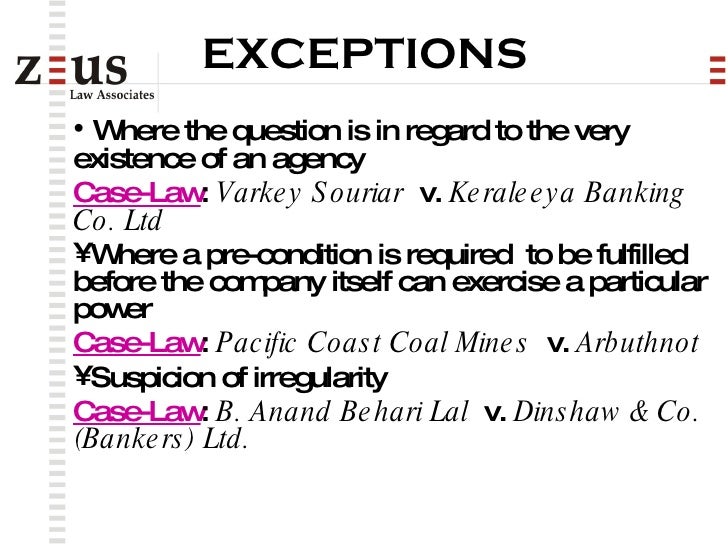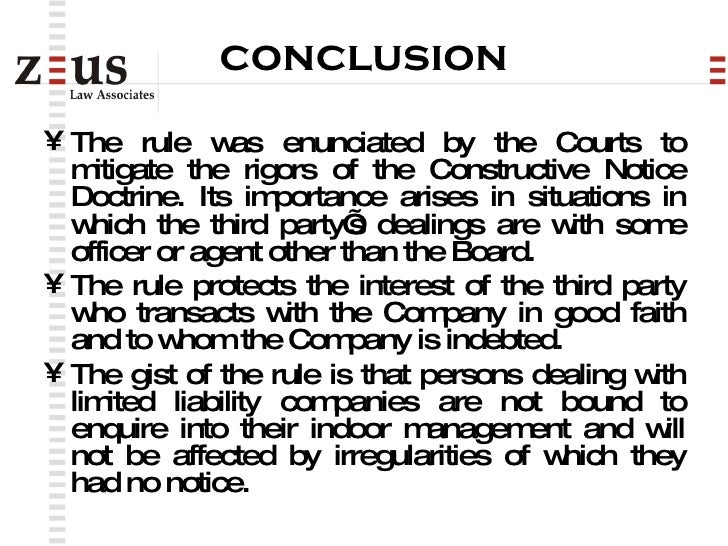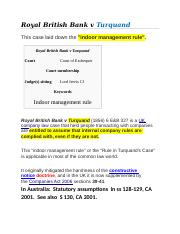Royal British Bank V Turquand
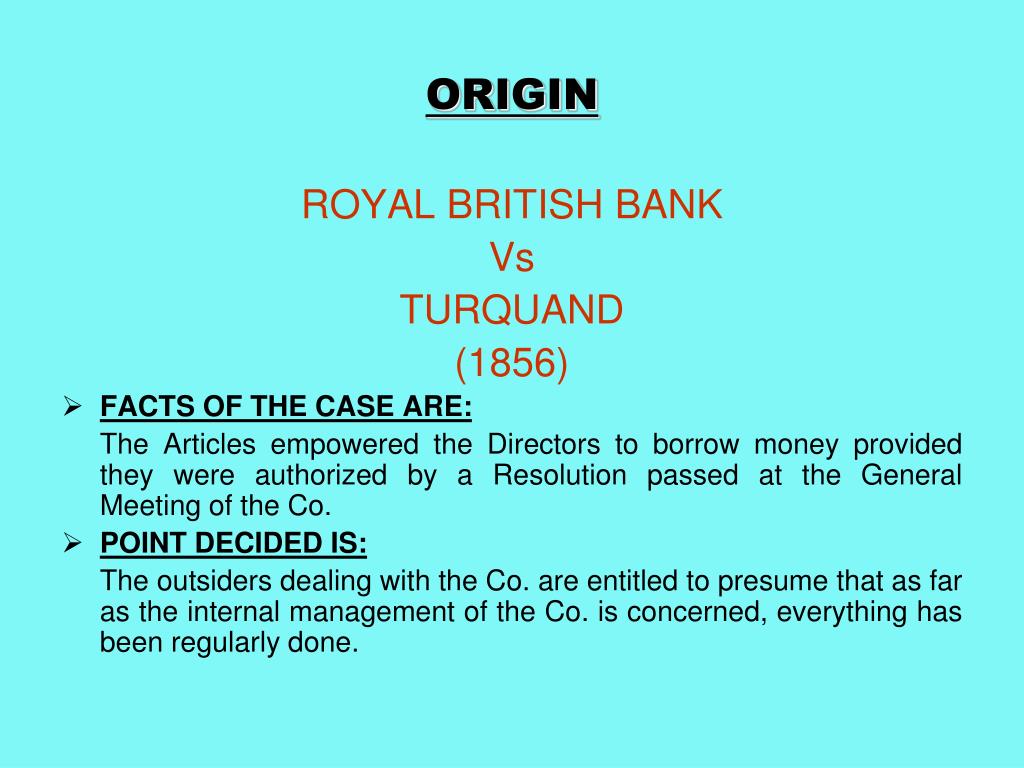
This indoor management rule or the rule in turquand s case is applicable in most of the common law world.
Royal british bank v turquand. Turquand 1856 6e b. This indoor management rule or the rule in turquand s case is applicable in most of the common law world. Royal british bank v turquand 6 ellis and blackburn 327 119 er 886 report date. Prior to this judgment there are several rules for protecting the person dealing with the company and most of.
Cec 1856 the plaintiff sought payment from the defendants a joint stock company on a bond signed by two directors under the seal of the company whereby the company acknowledged themselves to be bound to the plaintiff in pounds 2 000. It originally mitigated the harshness of the constructive notice doctrine and. Royal british bank vs. It originally mitigated the harshness of the constructive notice doctrine and.
The famous case of royal british bank v turquand laid down that a person dealing with a company must look only at the memorandum of association and the article of association to know the extent of the authority and not need to inquire into the regularity of the internal proceedings. 7 8 vict. 110 on a bond signed by two directors under the seal of the company whereby the. This indoor management rule or the rule in turquand s case is applicable in most of the common law world.
Turquand was the official manager liquidator of the insolvent cameron s coalbrook steam coal and swansea and london railway company. Royal british bank v turquand. It originally mitigated the harshness of the constructive notice doctrine and. Royal british bank v turquand 1856 6 e b 327 is a uk company law case that held people transacting with companies are entitled to assume that internal company rules are complied with even if they are not.
It was incorporated under the joint stock companies act 1844. The common law rule mitigated the perceived harshness of the doctrine of constructive notice with. Royal british bank v turquand 1856 6 e b 327 and the eponymous rule in turquand s case refer to the rule of english law that a third party dealing with a company is entitled to presume that a person held out by the company has the necessary authority to act on behalf of the company. Royal british bank v turquand 1856 6 e b 327 is a uk company law case that held people transacting with companies are entitled to assume that internal company rules are complied with even if they are not.
Royal british bank v turquand 1856 6 e b 327 is a uk company law case that held people transacting with companies are entitled to assume that internal company rules are complied with even if they are not. The rule basically protects the interest of the third party who transacts with the company in good faith and to whom the company is indebted. 327 read in detail a person who deals with the company needs to look only into the memorandum of association and article of association to know the extent of authority and need not inquire into the regularity of internal proceedings. The company had given a bond for 2000 to the royal british bank which secured the company s drawings on its current account.
The rule established in the case of royal british bank v.




